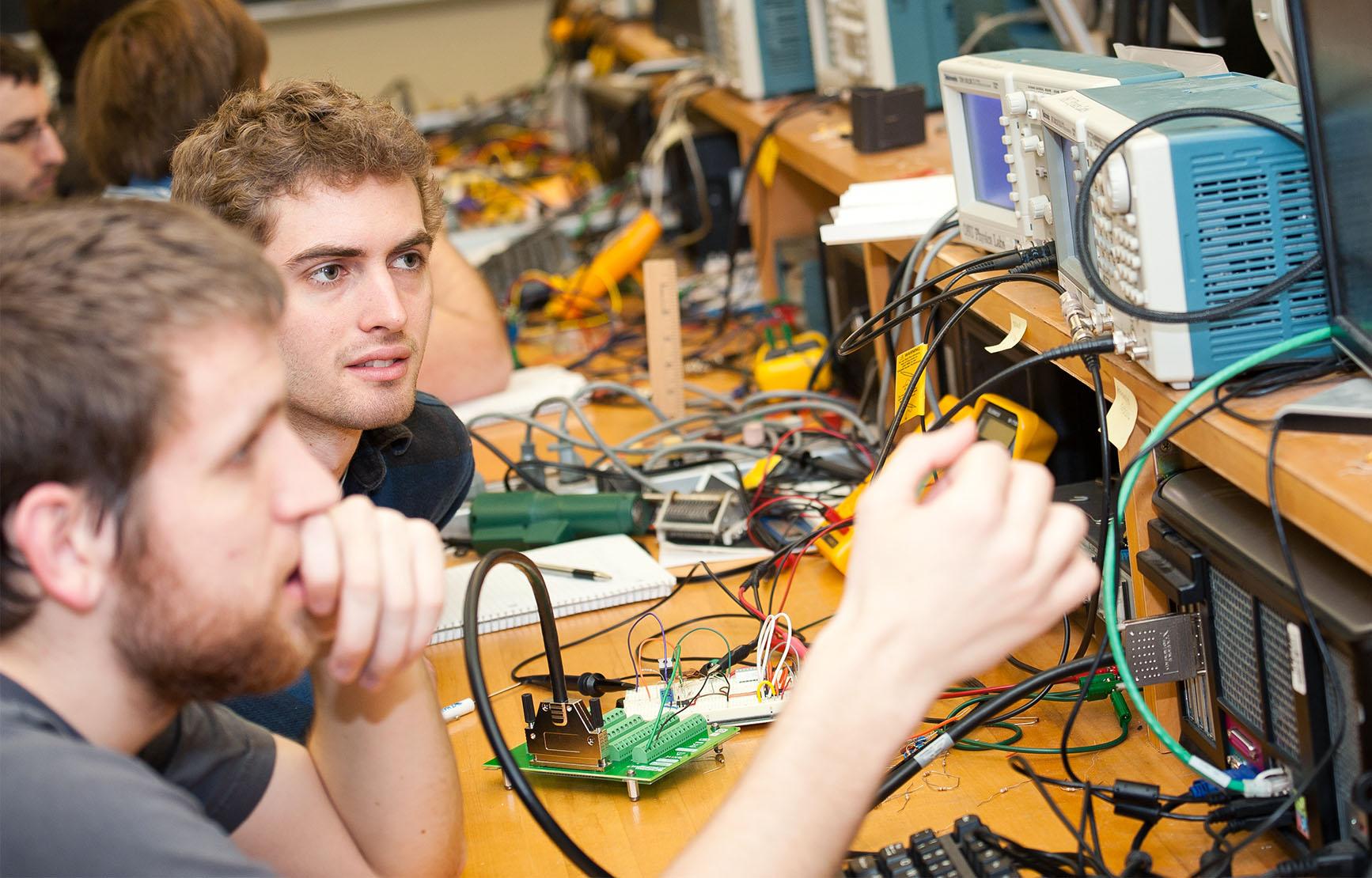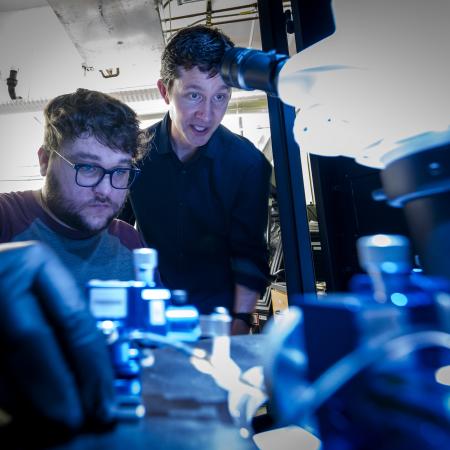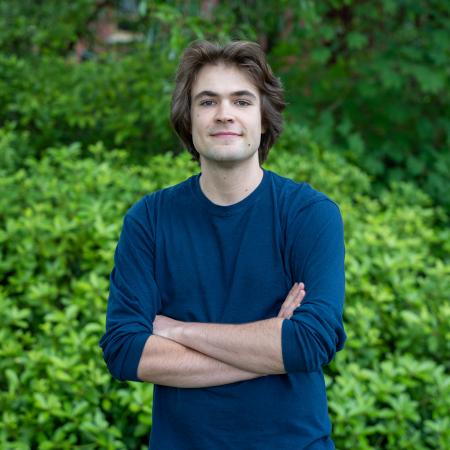Our undergraduate program provides a modern approach to physics and a variety of interactive class formats. Paradigms in Physics, the junior year sequence, is a series of six 5-week courses based on central concepts in Physics. Capstones in Physics is the senior-year program, designed to help students consolidate, broaden, and deepen their understanding of the subjects introduced in the junior year. Undergraduate research is an essential component of the curriculum. Our students can either choose a do a senior thesis research project under the supervision of a faculty member, or to take a 1-term experimental physics course to enjoy an open-ended exploration of physics.
Undergraduate Academics

Become a better problem solver through physics
Learning outcomes are educational goals that reflect what students can expect to learn throughout their physics courses and take with them beyond graduation. Physics learning outcomes center around problem-solving, sense-making, communication and experimentation.
Navigating the physics curriculum
Our approach teaches physics as physicists think about it, in terms of concepts that broadly underlie the various subfields: energy, symmetry, wave motion, and so forth. Introductory courses are followed by Paradigms in Physics classes and then senior-year Capstone courses in each of the major sub-disciplines.
Physics tutoring
The Wormhole is an informal space to work on physics with your peers under the guidance of experienced Assistants. This and other resources are available below.
Writing Intensive Courses
The WIC requirement in Physics is built around undergraduate research, which is an important component of our curriculum. Students may either (a) participate in PH317, a 1-term experimental physics course that has some open-ended exploration, or (b) write a thesis (PH403) over 3 terms guided by a designated faculty member along with your cohort. The individual research project that is the basis for your thesis is conducted under the supervision of another faculty member and is usually started before PH403.
Paradigms in Physics, a nationally recognized curriculum
In 1997, the OSU Physics Department implemented a total revision of all the upper-division theory courses. Paradigms courses feature a wide variety of active-engagement teaching strategies, including Small Whiteboard Questions, collaborative problem-solving, kinesthetic activities, physical manipulatives and computer visualization. Paradigms have innovative course structures that support these teaching strategies and organize the physics and math ideas in ways that are aligned with how professionals think.
Get professional development while assisting fellow students as a learning assistant
In a traditional lecture the instructor disseminates information in one direction. With the Learning Assistant (LA) model the instructors and student LAs moderate small group work. LAs are trained in content and best teaching practices during weekly pedagogy meetings with the instructors.



